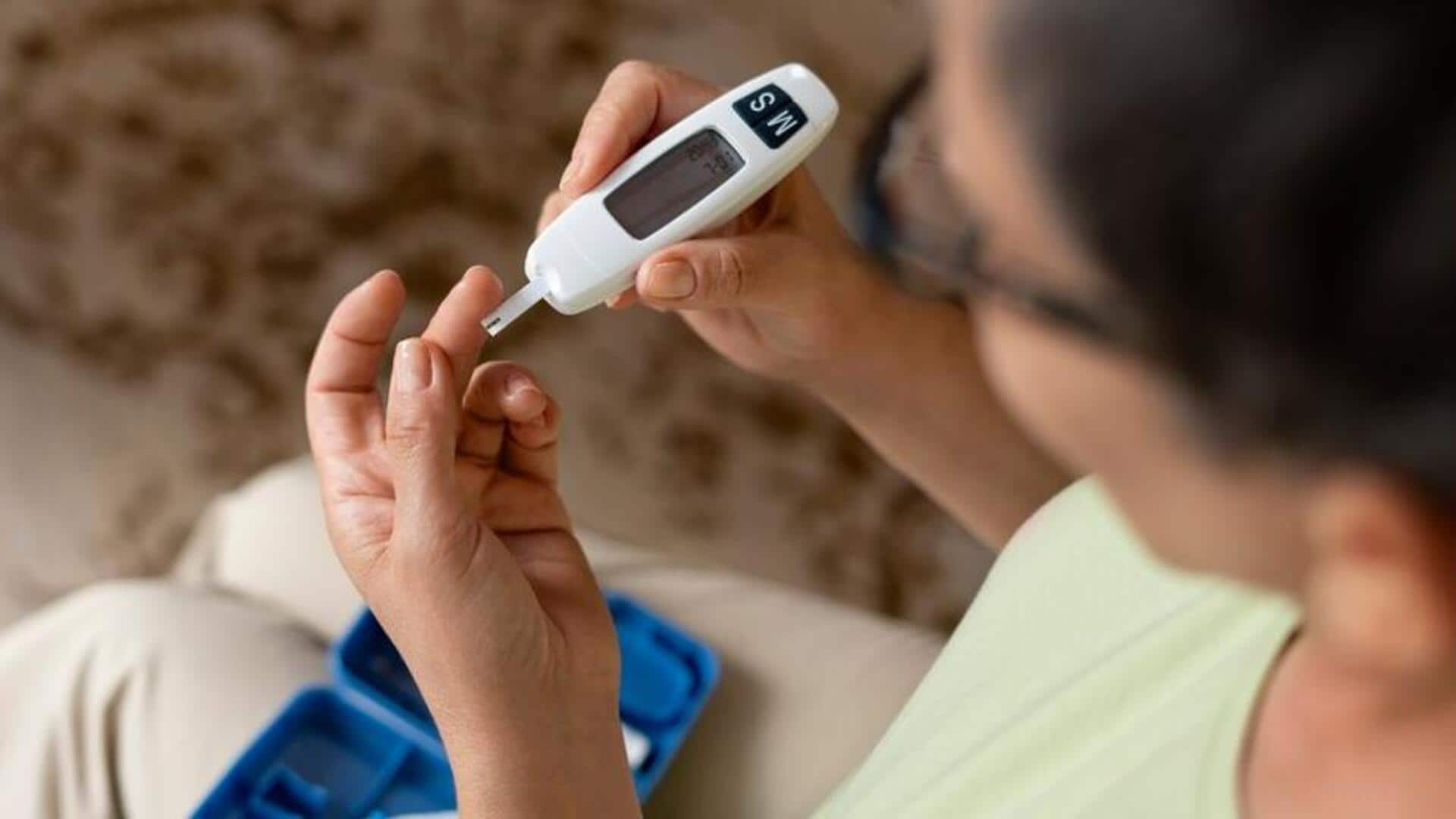
Lifestyle tips for a diabetes-free life
What's the story
Diabetes is a serious threat today, all thanks to sedentary habits and convenience-driven food choices. However, the good news is that you can evade this chronic medical condition or reverse it by taking a proactive approach to your health and making some changes to your lifestyle. Here are some useful strategies to prevent diabetes, which can be easily practiced or included in your routine.
Tip 1
Eat a balanced diet
A balanced diet rich in the right nutrients can help you lose weight, fuel your body, and control your blood sugar levels. Avoid a diet heavy on carbohydrates and sugar. Instead, consuming a diet high in fiber, such as whole grains, vegetables, fruits, and legumes is crucial. Fiber increases feelings of fullness and aids with blood sugar regulation.
Tip 2
Watch your portions
Limiting portion sizes can lower blood sugar and insulin levels as well as lower the chance of developing diabetes. It has been demonstrated that those at risk of diabetes have greater blood sugar and insulin levels when they eat a large meal at once. Be conscious of portion sizes to avoid overeating and manage weight effectively. Use smaller plates to encourage moderation.
Tip 3
Be more physically active
Engaging in physical activity can aid in weight loss, reduce blood sugar levels, and increase insulin sensitivity, all of which contribute to maintaining normal blood sugar levels. Try to get in at least 30 minutes a day of moderate to intense cardiovascular exercise, such as jogging, swimming, biking, or brisk walking, for a minimum of 150 minutes every week.
Tip 4
Regular health checkups
Schedule regular check-ups to monitor blood sugar levels, especially if there is a family history of diabetes. Be proactive in understanding and managing risk factors. Manage cholesterol levels and blood pressure through a healthy lifestyle and, if necessary, with medication. Aim for a gradual and sustainable weight loss if overweight. Collaborate with healthcare professionals to create a personalized health plan.
Tip 5
Lead a mindful lifestyle
Diabetes risk is correlated with both smoking and binge drinking. Reducing alcohol use and giving up smoking can improve your general health. Furthermore, insufficient sleep throws off the hormone balance and increases the risk of insulin resistance. Aim for six to eight hours of good sleep per night. Additionally, diabetes may develop as a result of ongoing stress. Hence practice stress-reduction methods.